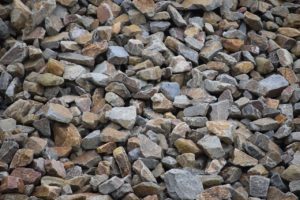
geralt / Pixabay
You feel it too, don’t you, that uneasiness when you wake in the middle of the night, that exhaustion when you open your eyes in the morning and think, “Not again”? You keep moving, keep checking your phone, keep on keeping on, because if you pause, if you hesitate, if you let yourself drift for more than a few moments, you come across that great, silent expanse that surrounds us all. Time. And it’s changing, it’s ebbing and flowing, there are currents and undercurrents and great shifts in the deeps.
You know something is wrong. A fish doesn’t know it’s wet, but we know that Time is there, enveloping us, flowing past and eroding us. It isn’t natural. It shouldn’t be.
We have disrupted Time.
I cannot prove it. No one can, because those who did it can become invisible, can change everything and anything to their liking. But think. If time travel exists–it doesn’t matter when it’s created or how, simply that somewhere, in some timeline, it was–then everything has been altered. It’s an undeniable syllogism:
Mankind creates.
Mankind is corrupt.
Therefore, mankind corrupts what it creates.
Time has been rewritten, is being rewritten, will continue to be rewritten forever. And we sense it. What is deja vu, what is the Mandela Effect, what are psychics and ghosts and myths but the mind grasping at shadows of what used to be but is no longer?
Perhaps there is a battle raging behind the scenes, forces of good and forces of evil directing the rudder of events to set our path. Perhaps some lone inventor, mad with power, pulls the levers of history to see what happens. Perhaps time travel is discovered again and again, first in this century, then in the next, and these exceptional explorers stumble across the works of each other with surprise and irritation. And we can never know that history has shifted, that Kennedy lived, that Rome ruled for millennia, that we nuked ourselves to oblivion. Because when someone goes back and fixes it (or break it–is there a right path or just a spaghetti of events?) we slip effortlessly into the new reality, like putting on a new set of clothes.
Don’t call me crazy. Don’t lump me in with flat-earthers and Bigfoot hunters. Explain to me our obsession, show me I’m wrong. Why do we count every second? Why do go mad when we turn 40? How is it possible we waste time? You will tell me it’s because time is limited, that it’s a non-renewable resource, but it’s more than that. It goes fast, it goes slow, it goes both at the same time, it creeps up on us, it passes without notice, it makes us hurt. There is friction between us and Time. We have changed our skin so often we have begun to feel it as something other than ourselves.
I shouldn’t say anything. It changes nothing. What do we do against our temporal masters? We can’t begin to know their motivations. I should keep my revelation to myself. But then I began to wonder–how did I come upon this revelation? Is it a remnant of something I once knew? Did I meet one of these travelers, before the past, my present, was changed? Was I one of them?
But this is all meaningless. Whoever is out there stepping all over past, present, and future has no hope. You can stack the events in whatever way you want, but it will not matter because what I said before is true. Man is corrupt. No amount of tinkering will fix that. And so we (one of us, many?) race back and forth across time trying to make all things new while we just wear thin the fabric in which we all live.
The arc of history does not bend toward justice, but toward ourselves.








Recent Comments